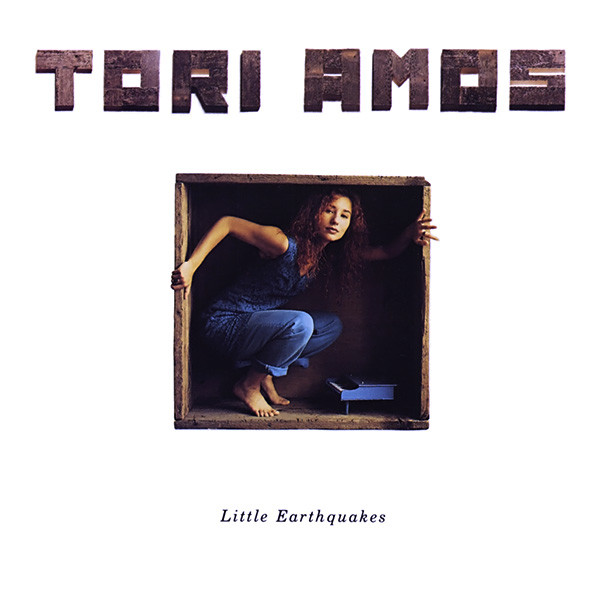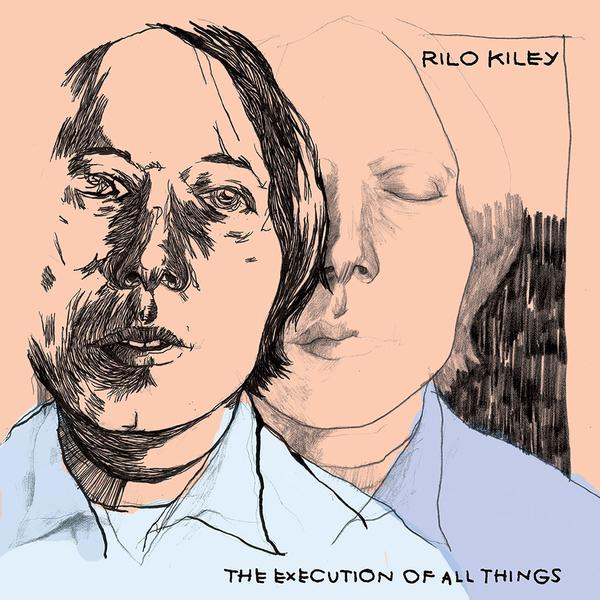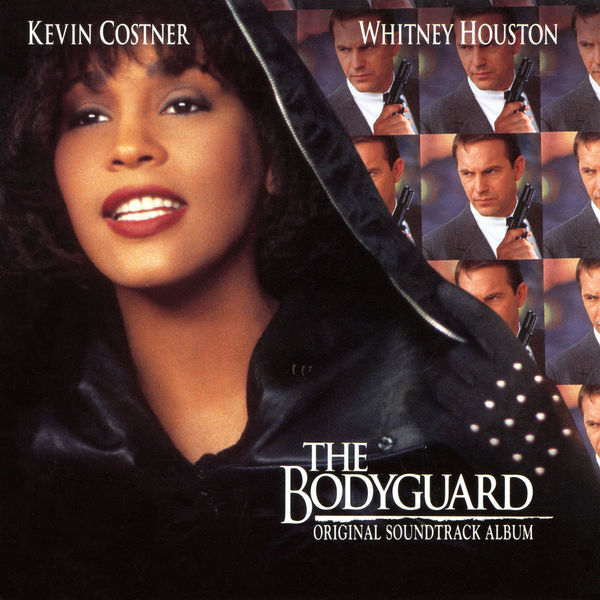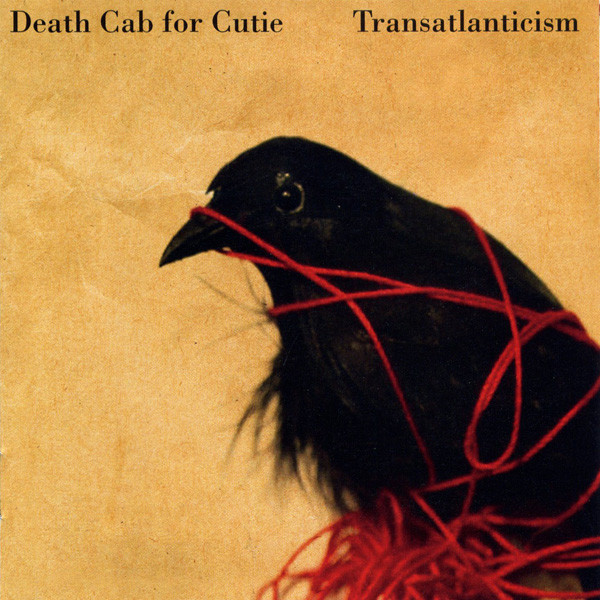
CHVRCHES songwriter and vocalist Lauren Mayberry has well documented, eclectic musical taste. You can hear it throughout the band’s discography, infusing their synth-pop anthems with hints of experimental electronic production, new wave homages, and nods to indie rock and emo jumping out in her melodies. It’s especially true on the band’s latest LP, Love Is Dead, which jumps from the buoyant “Get Out” to the downtempo, rattling duet “My Enemy” with The National’s Matt Berninger. Looking at the band’s choices of covers throughout the years backs up this idea, performing renditions of songs from Kendrick Lamar and The 1975 to Bauhaus and the Game of Thrones opening theme music.
Before CHVRCHES plays The Paramount Theatre this Saturday, Sept. 29, KEXP talks with Mayberry about five of her favorite albums. But it goes beyond just having variety in her record collection. Mayberry speaks with the enthusiasm of a fan who’s spent countless hours obsessing over every detail of the instrumentation and studying the lyrical prowess of her musical heroes. In hearing her talk about these records, we get a little bit of insight into Mayberry’s own work and the facets of songwriting that compel her most.

KEXP: How did you come across this album and how did it become important to you?
Lauren Mayberry: I guess I went the backward way than most do when they find Tori Amos. I had been listening to Fiona Apple and somebody had suggested to me, "If you this kind of thing, then you should definitely check out Tori Amos because she's like the queen of this genre." I had heard the name and I think I knew what she looked like, I'd seen album covers. I remembered the image and hearing that she has a really unique aesthetic. I knew that but I hadn't heard any of the music.
I think the first one I got was Under The Pink. But Little Earthquakes is definitely my favorite one. Lyrically, it's so artful. I love that she can one moment be living in a weird fantasy fairy tale and the next minute she can say something that's so straight down the line honest. I've seen her live maybe four times and she's insane live as well. That's what I love – when people take a genre or take an instrument and just totally turn it on its head. Like if you were saying "singer-songwriter that works mostly on piano," that has a certain implication. She can do these amazing, beautiful, haunting stripped-back things but she can also fucking rock it on the piano. "Precious Things" is one of my favorite songs because it's so dark and sinister and so aggressive and it's a piano-led song. I think that really blew my mind at that time. I was maybe 16 or 17, I think.
I read somewhere where you mentioned the piano playing on that album particularly being inspiring because you were learning piano around the same time you discovered this album. Is that right?
Yeah. So, I guess a lot of time when you're a kid and you're learning instruments, it's really important to learn the theory or more traditional things. But I think what really inspired me was just seeing how that can be put into context that's so different and creative and kind of out there in a lot of ways.
"She can do these amazing, beautiful, haunting stripped-back things but she can also fucking rock it on the piano."
I went back and listened to all these albums on your list, trying to think about in the context of your music and who you are. You mentioned the lyrics. I love how Tori does this – like you mentioned – kind of fantasy style writing and she uses a lot of religious imagery as well. Did you find her lyric writing informing or inspiring the way you approach lyrics at all?
Yeah, I don't know if I've consciously thought "I should write like Tori!" I wouldn't ever dream to think such grand things. I love that you can have songs like "China" or "Happy Phantom," which are seemingly more spiritual, theatrical, and upbeat. And then there's a song like "Leather," which I always take to be about BDSM, on the same record. There are lyrics like, "Just 'cause you can make me cum, it doesn't make you Jesus." She said it in, what, 1992? I feel like so many of those ideas are still relevant now. I think she understands her emotions and that's why she's easier for other people to connect with because she's talking about things in a really honest way. I guess that was kind of around the time of Lilith Fair and I really love a lot of that, but I think that Tori stands out from a lot of that for me because she's got this wild, aggressive streak to her writing as well as the more fragile parts.

LM: I suppose I'm a bit old on the millennial scale but technically I'm still a millennial, I found out about a lot of things through TV shows and I remember hearing about Bright Eyes from an episode of The OC where – I don't know if you watched The OC, but I remember it instantly – Anna and Seth were maybe going to go on a date and then she had gotten tickets to a Bright Eyes concert. And I was like "What is a Bright Eyes?" [laughs] and I went and looked it up. I guess we kind of had the Internet, but not in the way that we have it now, so I had to go to a record store and look for it and find it. This is the first [Bright Eyes album] I found. I think that this era of Bright Eyes and the few records after this are definitely my favorite ones.
I guess the big single off that record was "Lover I Don't Have To Love." Something I really love about certain songwriters is that you can say the things that make you seem unattractive. I think a lot of people are very honest about when they feel sad or when they feel upset or when they feel love towards something or joy or whatever. But a lot of people don't really write honestly about the less attractive parts of yourself. I think that sometimes that kind of nihilistic, fucked up thing that everybody does because isn't the thing that people write about and I think that's why that song stands out to me.
There are so many amazing lyrics in that record. I think my favorite one is maybe "Nothing Gets Crossed Out." It's such a simple song. It's just so... I don't know. Sometimes I find certain folk artists a little bland because you have to focus on the lyrics – because that's the way the instrumentation is directing you, it's focusing you on the voice. And then I kind of feel like that gives you a platform to really be a poet in the way that not a lot of people take advantage of and I feel like Conor Oberst really is that. I told people it was "emo folk and he defined that genre!" or whatever, but ultimately I think he's just a really honest songwriter and that's why it connected so much with me.
That record especially has so much variety on it. I mean you have "Lover I Don't Have To Love" right next to "You Will. You? Will. You? Will. You? Will." which just feel like totally different worlds. Placing them right next to each other is such an interesting idea. Do you like that kind of variety and experimentation?
Yeah, I think so. I guess at that time I listened to a lot of other records, which I really love, but they were a bit one dimensional in a lot of ways. It was like "this is your genre and you stay in your lane," whereas... I don't know, I guess that's why people find it so hard to describe what Bright Eyes sounded like because it wasn't guitar and a voice all the time. Sometimes it was crazy horn sections or strings or synths. I kind of feel like that's the best way to be as an artist. It's like, "Well, what do you want to make? What are you trying to express?" You can make your own blueprint. Not a lot of people get to do that or can do it successfully.
I guess it was a few years after that, but when the two records [I'm Wide Awake, It's Morning and Digital Ash in a Digital Urn] came out on the same day, I remember going to a record store to get them on the same day and just sitting, listening to them back to back on loop. I think that the fact that somebody can release a completely successful, more traditional folk record and a more electronic, experimental record on the same day that still have the same emotional content in both – it was really inspiring to me. I hate that when people say like, "Oh those aren't pop song lyrics" or "Those lyrics are too pop for this!" or whatever. I think that an artist like Bright Eyes shows that it doesn't matter where you're sitting, that you can feel what you want in whatever kind of musical setting you want as long as you're being honest.
"Just because some kids straightened their bangs a little more than others doesn't make [the music] any better or worse."
You mentioned The OC. We're pretty close to the same age and some of the albums from this particular time period I associate with the “LiveJournal/The OC era.” It's cool to see these records becoming a new canon for people in our age range. There are a few albums on your list that make me feel like that.
And I feel like so many people were snobby about that kind of music at the time. Some of it doesn't stand the test time as well as other parts of it. Maybe that's just what everybody does, they're like, "Eh, what the kids are listening to isn't valid, it's doesn't have substance." But when I think about being a teenager and listening to those records and the kind of music I want to make now, that definitely informed my way of being. I don't really believe in the whole looking down on emo thing because all emo music is music with emotional content, i.e. all music [laughs]. Just because some kids straightened their bangs a little more than others doesn't make it any better or worse.
Totally. And that album, in particular, I always found that to be one of the more difficult Bright Eyes records. People can dismiss it as "Oh the kids are listening to this," but that album demands a lot of attention from the listener. Did you find it easy to unlock or was it overwhelming at all?
I think maybe that's why I listened to it so many times because so much of the stuff that you're directed toward when your teenager is emotionally, reasonably straightforward. Whereas on this he's talking about relationships and fear and self-loathing and faith and lack of faith and disillusionment and despair and hope and all of the things, all in one record. And I think in some ways that's just like an assault on the senses in terms of emotions. But I guess I must have been hungering for that in some way. I still like that in music. Most of the time when I'm wandering around in my life and I'm like, "I don't know what the fuck I'm doing," and I'm like, "Oh God! Is it meant to be like this? Am I alright? Is everyone else alright? What's going on?"
So I feel like it's nice to have those moments... because people don't really honestly talk about that a lot in life. I don't think a lot of people sit and dig into that stuff because it's really uncomfortable. You don't want to think about it. You just put it out of your mind as much as possible. Hearing records like that where people are investing in those things makes you feel less alone or less of a lunatic, maybe. And I guess maybe that's why I was drawn to stuff like that and lyricists like Jenny Lewis because I feel like they talk about those things in a really honest but still artful way.
That's a great segue into the next album on your list.

LM: I guess talking about that time and place and scene, there wasn't really a lot of female voices in it. Most of the indie, folky, emo stuff were all dudes and I loved all of that – that's why half of it's on my list. I remember the first time I heard Rilo Kiley, I was totally blown away by her voice but also it was just so refreshing to hear a female perspective on that.
As a girl growing up listening to those things, I think it's weird. I remember being a teenager and going to all those shows and it was always all guys in bands singing this emotional content. But I think with it was Jenn Pelly who wrote something in recent years, it was kind of around the time all that stuff was happening with Brand New and things like that, and it was about how girls are essential to emo because it's who you're selling it to. The songs are written about them, they're buying the merch, they're coming to the shows, but there was never any space made for them. And about the kind of aggression and scene surrounding that. And I definitely didn't think about that consciously when I was a teenager, but now I look back on it and I'm like, "Yeah, that was really weird." 'Cause we were listening to lyrics like, "You can take a whore to water but you can't make her drink" and not thinking it was bad. It's really great when you hear those pioneering female voices. I think they really resonated with me and I didn't even consciously think about it at the time.
But my favorite line from that record is in the title track: "You say I choose sadness, that it never once chose me. Maybe you're right." And I think that line sums up for me the kind of writer she is and also the kind of singer she is. If you see a Rilo Kiley lyric written down, you can in your head immediately know what her intonation was because she's got this character in her voice. I feel like so many singers try and make everything super pristine and super perfect and just overly clean and clinical almost. I love the bits where she kind of lets her voice drop off into spoken word or there's a little bit of vocal fry on it. Like it's done 'cause she's a storyteller. She's not trying to act like she came out of a lab or something. And I think that's really inspiring to me in terms of singing as well.
"Nobody tells you what Rilo Kiley sounds like. You decide."
It's amazing to see, again looking in retrospect, how not just Rilo Kiley but Jenny Lewis' stature as an influential artist has just grown and grown. It's amazing to see how impactful she was and how much she touched people with her music and continues to. She's just a total hero.
Yeah and I think she just seems like she's really genuine and totally fucking fearless in terms of what she makes. Rilo Kiley kind of made a funk/disco record and they made folk records. She's made traveling troubadour style records. I just love that she's never thinking, "Oh, this is the way I have to do it because it's how I've done it previously." She's just able to make what she wants to make. And I think some of the songs on The Voyager were some of my favorite thing she's ever done.
With certain writers, you feel like they get stuck in a time and place in their mind and they write about that era forever, whereas I feel like she's written so many different things because she's just telling the story of her life story or telling the story of these characters that she's created. Show me any other artist that's writing about the pressure on women to procreate. How did you get that into a pop song? But you totally can! It was so profound and poignant and honest. I feel like that's really inspiring and long live Jenny, I say!
You mentioned how she's covered so many different genres and styles. What about this album in particular stands out the most from all of her material?
Well, that one's a tough one because I started going through my list and I thought, "Which one is my favorite? I don't know!" But I guess, again, it's the first one that I found. I think I got into it around the time that More Adventurous came out and I went to a record shop to try and find it but I couldn't find that one and I got [The Execution of All Things] instead so I was like, "Oh, I'll just have a listen." But I love that it's got that jangly, messy, Cursive, Saddle Creek-y kind of thing going on. In a way, it's kind of a party folk record but with these really poignant, existential crisis moments on it.
The fact that you can have a song like "A Better Son/Daughter," which it's not a party song but it's almost a kind of triumphant protest song about everyone being confused. And then the song "With Arms Outstretched" is basically just people around a microphone and an acoustic guitar. Again, I think that's real bravery and faith in your songwriting and not burying things under layers of production. You know, like, "Oh we'll put some strings in to make it lush." I think sometimes the less you do to something, the more honest it makes it. And I think that's why this record feels like the most consistent to me. I just kind of love it! They can make stuff like that and then the opening singles from one of the other records was "Silver Lining," it's got a slide guitar and kind of disco beat. That's really inspiring, to just make what you want to make. Nobody tells you what Rilo Kiley sounds like. You decide.

LM: That's a bit of a curveball in the list. I guess most of the music we listened to when we were kids was stuff that my mom and dad would be listening to. My dad listened to a lot of Yes and Brian Wilson and The Blue Nile and things like that. My mom, she was more into Sade and Whitney Houston. And they would play them for us when we were in the house. I remember just becoming absolutely obsessed with Whitney Houston and I would listen to I'm Your Baby Tonight and The Bodyguard soundtrack all the time. I put in The Bodyguard soundtrack 'cause I watched the film constantly as well.
When I was a kid, I don't think I really wanted to be a singer or a performer or anything like that. I don't even really know if I like being a performer as a grown up. I feel like I like being a writer. Just seeing her in that film, she's like the triple threat. Who could do that? If we were to recast The Bodyguard, I don't know who would be able to do it. There's a reason why her music connects with so many people because her voice is a tool for communicating – it's a tool for making people feel things. I think the perfect example of that is in that film where they're sitting on the porch, they sing an acapella version of "Jesus Loves Me." I think they do it acapella in the film and then it's done again for the soundtrack. That she can do a song as simple as that but you would still pick her out of a line up of millions of [vocalists] because she's just got this incredible gift.
"There's a reason why her music connects with so many people because her voice is a tool for communicating – it's a tool for making people feel things."
It's hard to think of an album that comes out swinging out the gates more than this one. I mean, it opens with "I Will Always Love You" and it's just hit after hit after that. Of all the records on your list, it feels maybe like the most mainstream or pop and you have a lot of pop influence in your music. Did this connect with you in that way?
Well, I guess that's the stuff I grew up on. When you're a kid, you usually listen to what's on the radio or what is playing in the house. I think I have a real appreciation for those things. I grew up on a steady diet of that and Eurythmics and Madonna and George Michael and things like that. Again, I think there's a snobbery involved in that. When I was a teenager, I was definitely like, "I don't listen to x, y, and z because it's not good." I think that's just snobby. It has to do with what you think people think about you rather than what you're listening to.
"I Will Always Love You" is maybe one of the most famous cover songs of all time and she also covers "I'm Every Woman." You yourself, you've done a lot of covers. You've done everything from Kendrick Lamar and Arctic Monkeys to Prince and even Whitney Houston. How do you approach putting your own spin on a song and did Whitney have any influence there at all?
I don't think so. I guess most of the time when we do it, it's because radio stations ask you to do covers, so that's why you have to do it. I think that speaks to her level of talent, the fact that Dolly Parton's an amazing singer and then somebody can come in and reinterpret it and it takes it into another stratosphere. That must be an absolutely god-level singer. And that's how I would describe Whitney.
You've done a fair amount of soundtrack work yourself with songs in Hunger Games and Vampire Academy. Would you ever want to do something on the scope of The Bodyguard?
[laughs] I mean if somebody asks us I'm sure we would but I'm not sure we'll ever make a movie as good as The Bodyguard. We'll have to see. I also went to see The Bodyguard musical and I was not into that. They kind of kept the plot the same and but they tried to shoehorn in other songs from other parts of her career and it just felt kind of tacky and crass and disrespectful. I think I was taking it too seriously, maybe.

LM: I think this still remains my favorite Death Cab album because it's the one that I found them on, which is probably the case for a lot of people. I really admire and respect them because they've always been trying to evolve their sound and the way that they do things while still having that kind of singular voice. Again, I feel like this record is a great showcase of the range of human emotion. There's some really dark and sad songs on there. I like that juxtaposition when you can take something introspective and thoughtful and poignant and put it into a song like "The Sound of Settling." Something doesn't need to always sound [like] what it says or feel what it looks like, if you know what I mean.
I think I even saw that Ben Gibbard ranked it as his favorite Death Cab album recently. You sound like you're a pretty big fan. What takes this beyond the other ones for you?
So many of my favorite songs are on it. "Tiny Vessels," "Transatlanticism," "We Looked Like Giants," and "A Lack Of Color" are probably four of my favorite Death Cab song of all time. Again, it's kind of about that brutal honesty in your lyrics. The lyric, "This is the moment that you know you told her that you loved her but you don't." I was like, "Woah." That's a really open, brutal thing to say about somebody. Not to be totally nerdy, but it's kinda cool because it's an overlapping line, so that could be what the line is but the next line is, "You don't touch her skin." And I'm like, "Which one of these lines is correct? Are they overlapping? Do they both exist?". Ben's an amazing lyricist and he's also so great at those little word tricks and wordplay. Some people you listen to the lyrics and you're like, "They are lyric writers, they're not poets." Whereas somebody like Ben Gibbard is a poet and the poetry is set to music.
I guess I know these guys pretty well now so I just keep this to myself and I don't tell them too much about how much their band means to me. Once every so often, I'll let it out. But then I'm just like, "Keep cool, keep cool." Don't want to creep them out too much, you know?
A massive lighting rig. Pulsating four-on-the-floor beats. A constant, insistent bass presence in every song. Choruses that, in the moment, seem like they can actually propel the audience to the heights the singer is claming she'll go to. This is not Chvrches, the Glasgow basement project that emer…
It's hard to believe that next month will be the one year anniverary of Scottish electronic band CHVRCHES releasing their first LP. At this point, it seems like the trio has been dominating indie and pop airwaves for ages. Every track on The Bones of What You Believe oozes with pristine pop majesty…